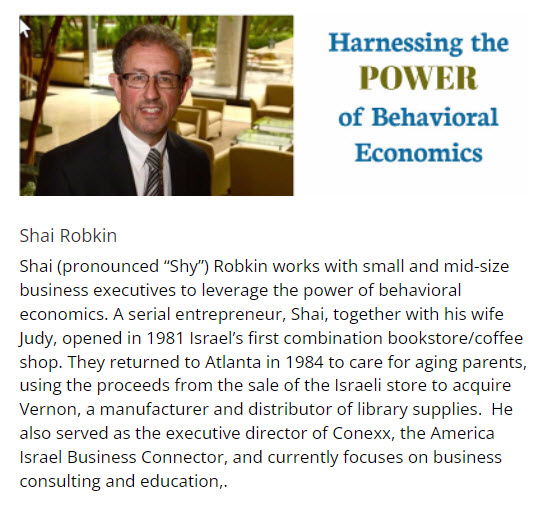IN-PERSON AND VIRTUAL
Behavioral Economics with Shai Robkin
The course introduces students to key concepts designed to help people and organizations make better decisions and avoid common pitfalls that result from instinctive human behaviors. While classical economic theory assumes that people make rational decisions, weighing costs and benefits in order to optimize the likelihood of achieving desired outcomes, behavioral economists start by asking how humans actually behave in the real world. The course covers basic theories of evolutionary psychology, automatic vs. controlled thinking, heuristics (simple procedures that people use unconsciously to reach decisions on difficult questions), prospect theory and inaccurate perceptions of risk, the role of chance, public policy and choice architecture, and when and when not to trust experts.

